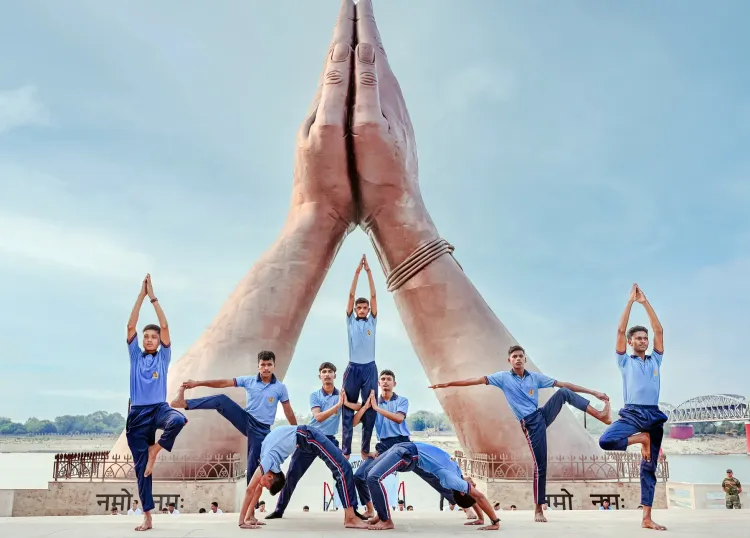Can Yoga, Tai Chi, and Walking Alleviate Insomnia?

Synopsis
Key Takeaways
- Yoga can enhance total sleep time by nearly 2 hours.
- Tai chi improves sleep quality scores significantly.
- Walking and jogging help reduce insomnia severity.
- Exercise interventions are low-cost with minimal side effects.
- Integration into primary care is essential for community health.
New Delhi, July 17 (NationPress) Are you struggling with insomnia? Engaging in activities like yoga, tai chi, walking, and jogging could significantly enhance your sleep quality, as highlighted by recent research.
The study, published in the online journal BMJ Evidence Based Medicine, supports the idea of using exercise as a key strategy to combat poor sleep.
Insomnia manifests through challenges in falling asleep, staying asleep, and waking up too early. It poses increased risks for various mental and physical health issues, including dementia and cardiovascular diseases.
While pharmaceutical treatments for insomnia can lead to undesirable side effects, cognitive behavioural therapy (CBT) is effective but often limited by the availability of qualified therapists, according to researchers from Beijing University of Chinese Medicine, China.
“This study's findings highlight the therapeutic benefits of exercise interventions in treating insomnia, suggesting they could serve as a primary treatment option rather than just supplementary support,” stated Zhao-lan Liu, the lead author from the university.
“Current clinical guidelines only briefly mention exercise, but this study provides substantial comparative evidence that could shape more precise clinical recommendations,” Liu added.
The research involved a meta-analysis of 22 randomized clinical trials with 1,348 participants exploring 13 different methods to alleviate insomnia. Seven of these methods were exercise-based: yoga, tai chi, walking or jogging, aerobic plus strength exercise, strength training alone, aerobic exercise combined with therapy, and mixed aerobic exercises.
Other methods included CBT, sleep hygiene, ayurveda, and acupuncture or massage.
Results showed that yoga significantly increased total sleep time by nearly 2 hours and improved sleep efficiency by about 15 percent. It also decreased the time spent awake after falling asleep by nearly an hour and halved the time taken to fall asleep.
Walking or jogging led to a substantial reduction in insomnia severity, dropping nearly 10 points, while tai chi improved sleep quality scores by over 4 points, extended total sleep time by more than 50 minutes, and reduced wake time after sleep onset by over half an hour. Additionally, it shortened sleep latency by around 25 minutes.
“Considering the benefits of these exercises—such as low cost, minimal side effects, and high accessibility—the research team advocates for their integration into primary care and community health initiatives.









